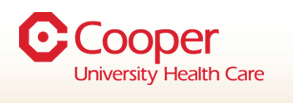A Research Study to Evaluate the Effectiveness of Dexmedetomidine in Preventing Delirium After Heart Surgery
| Status: | Withdrawn |
|---|---|
| Conditions: | Neurology, Psychiatric |
| Therapuetic Areas: | Neurology, Psychiatry / Psychology |
| Healthy: | No |
| Age Range: | 18 - Any |
| Updated: | 3/22/2017 |
| Start Date: | April 2007 |
| End Date: | September 2007 |
A Phase III, Randomized, Double-Blind, Placebo-Controlled, Two-Arm Parallel, Multicenter Study Evaluating the Efficacy and Safety of Dexmedetomidine in the Prevention of Postoperative Delirium in Subjects Undergoing Heart Surgery With Cardiopulmonary Bypass
The purpose of this study is to evaluate the efficacy and safety of dexmedetomidine in the
prevention of postoperative delirium in subjects undergoing heart valve surgery with or
without coronary artery bypass surgery (CABG) using cardiopulmonary bypass (CPB).
prevention of postoperative delirium in subjects undergoing heart valve surgery with or
without coronary artery bypass surgery (CABG) using cardiopulmonary bypass (CPB).
Postoperative delirium is an acute decline in cognition and attention which is usually
transient but when delirium persists, it can impact cognitive function, morbidity and
mortality. Currently, there are no drugs to prevent delirium but dexmedetomidine has the
potential to meet this unmet medical need.
Dexmedetomidine is currently approved for use for 24 hours in patients on ventilators in the
Intensive Care Unit(ICU). This study is to determine whether or not dexmedetomidine can
prevent delirium after heart surgery. Study participation will last from randomization prior
to surgery, to 3 days after surgery. Dexmedetomidine will be given through an intravenous
catheter beginning at sternal closure and continue throughout the stay in the ICU. Delirium
will be assessed prior to surgery and for 72 hours after surgery. This assessment will
consist of questions that will evaluate memory and thought process. Thirty days after
surgery, questions will be asked regarding the patients feelings about their health status
and hospital billing information will be collected.
transient but when delirium persists, it can impact cognitive function, morbidity and
mortality. Currently, there are no drugs to prevent delirium but dexmedetomidine has the
potential to meet this unmet medical need.
Dexmedetomidine is currently approved for use for 24 hours in patients on ventilators in the
Intensive Care Unit(ICU). This study is to determine whether or not dexmedetomidine can
prevent delirium after heart surgery. Study participation will last from randomization prior
to surgery, to 3 days after surgery. Dexmedetomidine will be given through an intravenous
catheter beginning at sternal closure and continue throughout the stay in the ICU. Delirium
will be assessed prior to surgery and for 72 hours after surgery. This assessment will
consist of questions that will evaluate memory and thought process. Thirty days after
surgery, questions will be asked regarding the patients feelings about their health status
and hospital billing information will be collected.
Inclusion Criteria:
- Adult (≥18 years old) male or female who will undergo elective heart valve surgery
(with or without CABG and using CPB) with general anesthesia and require an overnight
stay in the ICU following surgery.
- If female, subject is non-lactating and is either:
1. Not of childbearing potential, defined as post-menopausal for at least 1 year or
surgically sterile due to bilateral tubal ligation, bilateral oophorectomy or
hysterectomy.
2. Of childbearing potential but is not pregnant at time of baseline and is
practicing one of the following methods of birth control: oral or parenteral
contraceptives, doublebarrier method, vasectomized partner, or abstinence from
sexual intercourse.
- Subject is American Society of Anesthesiologists (ASA) Physical Status II, III, or
IV.
- Subject (or subject's legally authorized representative) has voluntarily signed and
dated the informed consent document approved by the Institutional Review Board (IRB).
Exclusion Criteria:
- Cognitive function level by Mini Mental State Exam (MMSE) of ≤ 20 at screening.
- Subject has a positive CAM-ICU result for delirium at Screening.
- Subject requires chronic anti-psychotic therapy.
- Subject has participated in a trial with any experimental drug or experimental
implantable device within 30 days prior to the study drug administration, or has ever
been enrolled in this study.
- Subject is known to be in liver failure.
- Subject has an anticipated potential for increased intracranial pressure or an
uncontrolled seizure disorder or known psychiatric illness that could confound a
normal response during study assessment.
- Subject has acute myocardial infarction, HR <50 bpm, SBP <90 mmHg, is hemodynamically
unstable requiring systemic inotropic drugs or intra-aortic counterpulsation balloon
pump within the last 72 hours.
- Subject is anticipated to require hypothermic circulatory arrest during this surgical
procedure.
- Subject has received treatment with a α2-agonist or antagonist (within 14 days of
study entry).
- Subject for whom opiates, propofol, Dexmedetomidine or other α2-agonists are
contraindicated.
- Subject has, per the investigator's judgment, a known or suspected physical or
psychological dependence on an abused drug, other than alcohol.
- Subject has any condition or factor which, in the Investigator's opinion, might
increase the risk to the subject.
- Subject is not expected to live more than 60 days.
We found this trial at
11
sites
Cooper University Hospital Cooper University Health Care, the clinical campus of Cooper Medical School of...
Click here to add this to my saved trials
Cleveland Clinic Cleveland Clinic is committed to principles as presented in the United Nations Global...
Click here to add this to my saved trials
Baylor University Medical Center Baylor University Medical Center in Dallas, TX is ranked nationally in...
Click here to add this to my saved trials
Click here to add this to my saved trials
Click here to add this to my saved trials
Click here to add this to my saved trials
Click here to add this to my saved trials
Loma Linda University Loma Linda University (LLU) is a Seventh-day Adventist educational health-sciences institution with...
Click here to add this to my saved trials
Click here to add this to my saved trials
University of Pittsburgh Medical Center UPMC is one of the leading nonprofit health systems in...
Click here to add this to my saved trials
Click here to add this to my saved trials




